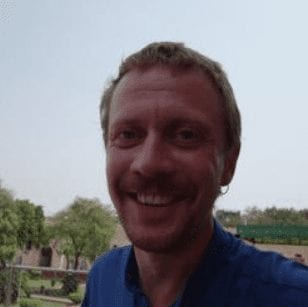Through the work of ‘Colonial Critters’ we will introduce museum users to new, exciting stories and perspectives relating to our diorama displays.
The Powell-Cotton Museum dioramas are the oldest intact large-scale habitat dioramas in the UK, and among the oldest and best preserved in the world. They contain over 300 animals of more than 150 species, in sculpted and painted settings of astounding detail. Built between 1896 and 1939, these displays are of enormous historical importance as objects in their own right. The dioramas will not be physically changed as part of this project.
The specimens within the dioramas are of huge scientific value, as they include examples of animals that are now critically endangered such as the Northern White Rhino, and also type specimens. The taxidermy is of very high quality and anatomical accuracy, and was produced by the eminent London firm of Rowland Ward Ltd using notes and photographs by Percy Powell-Cotton based on his observations of the animals in the wild.
We consider this to be a colonial collection as the mounted animals were hunted across Africa and the Indian subcontinent, mainly in regions under European colonial control at the time. Their histories as both living animals and museum objects are bound up in colonisation and its exploitation of natural resources and human labour. The dioramas represent much more than just the remains of long-dead animals. They are time capsules, unchanged since they were built; however, there is much more to these displays than first meets the eye. We will uncover a complicated story through research and provide new factual information in a meaningful way.
The Museum’s displays have always been presented through the lens of the ‘Powell-Cotton story’. The wider colonial context has rarely been acknowledged, and the voices of the many people across the African continent, in India, and locally in Kent who contributed to the development of the Museum and its collections are largely absent from the narrative.
We hope to break down some of the visible and invisible barriers to access that currently exist and give space and representation to many voices within the Museum
Rachel Jennings
‘Colonial Critters’ will thoroughly research the history of the dioramas and produce new interpretation for the natural history galleries, informed by our audiences. Through this process we hope to refresh our oldest galleries, using these historical displays to tell new stories about the many people, and animals, who made the Museum.
We will bring our audience with us on this journey to better understand our shared past and decide where we want to be as a museum in the future. We will engage with our various stakeholders through the archives and collections, and take the collections out into community spaces by creating temporary ‘pop-up museums’ in the local area. Through this process, we hope to break down some of the visible and invisible barriers to access that currently exist and give space and representation to many voices within the Museum.
Project goals
- To reinterpret key Natural History displays and place them within their historical context.
- To create a variety of types of interpretation that are accessible to different audiences.
- To produce a programme of public events that is suitable for different age groups and audiences.
- To fully catalogue all of the Natural History material on display within Galleries 1 – 3, and make information available online.
- To create a space that is welcoming and safe for all visitors.
- To engage a range of local community groups in the project, and create lasting relationships with them.
- To embed a new way of interacting with visitors about our collections. This project is a pilot for thinking critically about our collections in new ways internally, and how we convey that to external stakeholders.
Rachel will be contributing to our museum blog with updates on Colonial Critters’ as work progresses.
Project Partners
Rachel Jennings, Curator of Natural History, Powell-Cotton Museum
Samina Zahir, Director, Hybrid Consulting
Tom Crowley, Independent Consultant, Hybrid Consulting
If you have a question relating to Colonial Critters, please use this contact form to get in touch. We aim to respond to all enquiries within 7 days.
Read our latest project update
Colonial Critters Blog
Curator of Natural History

Samina Zahir
Director
Hybrid Consulting
